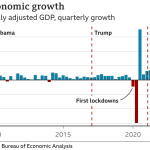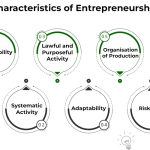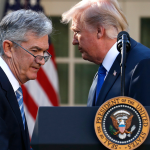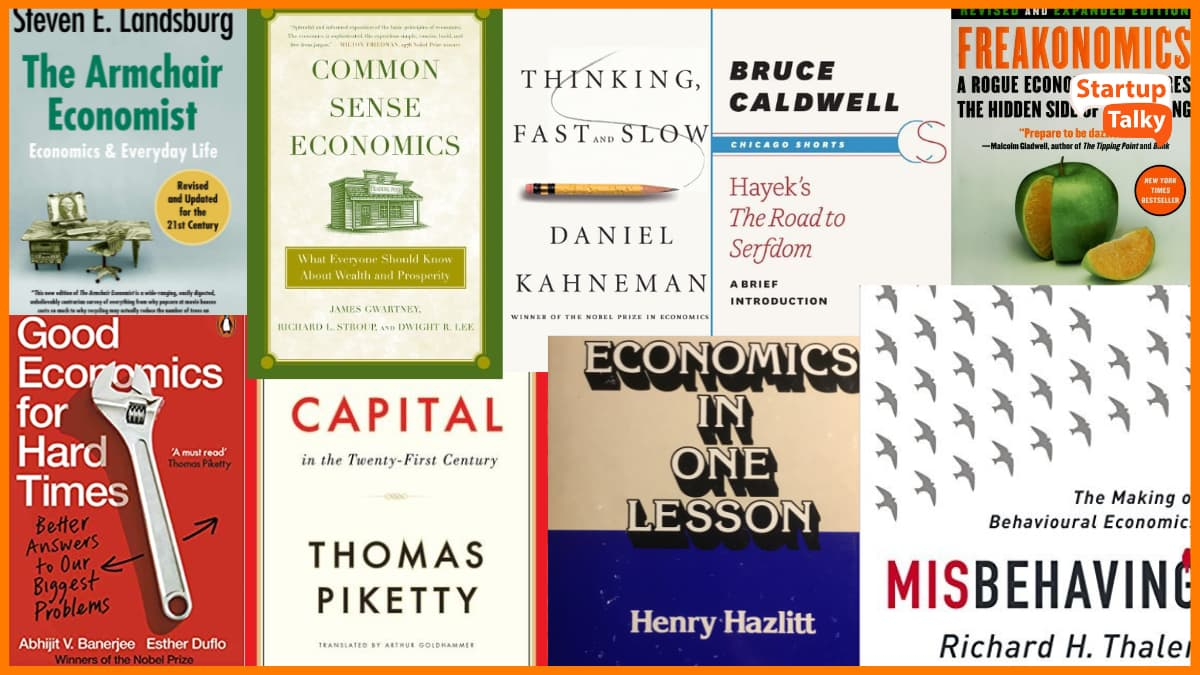Books on Economics serve as invaluable resources for anyone looking to understand the intricate relationship between money, finance, and the economy. Whether you’re seeking economic books recommendations or the best finance books for 2024, there’s a wealth of literature available that can illuminate these complex topics. Renowned economists, including those from Harvard, have provided insights through their favorite reads, catering to both novices and seasoned individuals interested in mastering money management literature. Titles such as “The Ascent of Money” and “The Future of Money” delve into historical and contemporary financial systems, offering readers a broader perspective on economic policies and theories. By exploring these works, you can enhance your understanding of money management and the fundamental principles that shape our global economy.
Literature focusing on economic principles and financial strategies reveals essential insights into the world of currency and commerce. This collection of books, often highlighted by experts like Harvard economists, not only covers foundational concepts but also addresses contemporary challenges faced in personal and global finance. From understanding money books to exploring the dynamics of fiscal policies, readers are provided with a comprehensive toolkit for navigating the complexities of financial life. With the rise of digital currencies and the evolving landscape of economics, this genre remains crucial for anyone aiming to stay informed and adept in money management. As we delve deeper into these resources, we uncover the profound effects that financial decisions can have on individuals and societies alike.
Top Economics Books to Understand Money Management
For anyone looking to grasp the intricacies of money management, diving into recommended literature can prove beneficial. Among the standout titles is “Money” by Jacob Goldstein, which entertains while educating readers about the historical evolution of money and its many forms. This book not only offers insights into what money is and has been, but it also narrates cautionary tales of investments gone awry, making it a vital read for both novices and seasoned finance enthusiasts.
Similarly, works such as “The Future of Money” by Eswar S. Prasad provide current perspectives on the complex dynamics surrounding cryptocurrencies and the role of central banks in shaping the future of currency. As global financial markets expand and evolve, it’s crucial for readers to stay informed through the best finance books of 2024, which feature a blend of historical context and future predictions in the realm of economics.
Harvard Economist Book Recommendations for Financial Literacy
The rich tapestry of financial literature recommended by Harvard economists illuminates the path for those seeking to enhance their financial literacy. Titles such as “The Ascent of Money” by Niall Ferguson not only chronicle the historical development of money and finance but also highlight how these elements are intricately woven into the social fabric throughout different eras. Ferguson’s engaging prose and wealth of knowledge make this book both an informative and entertaining read, perfect for those serious about understanding the economy.
Moreover, Kenneth S. Rogoff’s “The Curse of Cash” sheds light on the evolution of currency while discussing the implications of digital currencies in our modern world. By examining traditional and contemporary monetary systems, Rogoff’s book stands as a crucial piece of money management literature that assists readers in navigating the shifts in how we handle currency today. As we look for economic books recommendations, these titles from esteemed economists can significantly enhance our understanding of financial principles.
Understanding Money Books for Beginners
For beginners venturing into the complex world of economics, selecting the right books can lay a solid foundation for understanding money. “Money Mischief” by Milton Friedman presents an enlightening journey through monetarism and how money influences economic activities. Although it leans towards scholarly analysis, it remains accessible to those new to economic concepts, making it a recommended read in the understanding money books category.
Another essential title is Claudia Goldin’s “Career and Family,” which, while focusing on the balance between personal aspirations and economic realities, also touches upon the financial implications of career decisions. By highlighting the economic forces at play in everyday life, Goldin’s work serves as an enlightening resource for anyone looking to grasp money matters and family dynamics in today’s economy.
Influential Books on Economics by Notable Authors
Exploring influential books on economics offers readers perspectives from some of the most respected figures in the field. Walter Isaacson’s “Ben Franklin: An American Life” intricately details Franklin’s revolutionary ideas surrounding currency and money management, presenting lessons that are relevant even today. This biography not only reflects on Franklin’s contributions to financial practices in colonial America but also prompts readers to consider the evolution of money through historical contexts.
Additionally, “The Price of Peace” by Zachary D. Carter provides a riveting biography of John Maynard Keynes while detailing his profound impact on economic policy. By understanding Keynes’s theories on money and its role during times of crisis, readers can gain a deeper appreciation of modern economic strategies and the challenges that persist in contemporary financial landscapes.
Cryptocurrency and the Future of Finance: Essential Reads
In the rapidly changing finance landscape, books that delve into cryptocurrency provide essential insights for investors and financial professionals alike. “The Future of Money” by Eswar S. Prasad meticulously examines the rise of digital currencies and the implications they carry for the future of global finance. By weighing the benefits and drawbacks of cryptocurrencies versus traditional money frameworks, this book serves as a definitive guide as we navigate this financial evolution.
Furthermore, “The Only Game in Town” by Mohamed A. El-Erian analyzes the implications of central banking in the wake of global financial crises. His detailed examination of monetary and quasi-fiscal policies sheds light on how these measures have reshaped financial landscapes. Together, these titles offer a comprehensive look at how modern economies are adapting, making them crucial reads for anyone interested in understanding future finance trends.
Biographies of Economists That Illuminate Financial Concepts
Biographies can offer profound insights into the lives of economists and their contributions to the field. “The Forgotten Financiers of the Louisiana Purchase” by Larry Neal uncovers the financial complexities behind one of America’s landmark deals, emphasizing how money influenced diplomatic decisions. By intertwining historical narratives and financial expertise, this book makes economics more relatable to the general reader.
Similarly, books like “Career and Family” by Claudia Goldin examine how women’s economic aspirations have progressed over the years. This narrative not only reflects societal change but also contextualizes it within the frameworks of economic theory. As these authors blend personal stories with financial concepts, they create a rich, engaging analysis that appeals to both economics students and lay readers.
Money Management Literature for Aspiring Investors
For aspiring investors, reading money management literature is essential in honing their skills and strategies. Books like “Money Mischief” and “The Curse of Cash” provide foundational knowledge that helps readers understand how monetary policies impact investment decisions. By grasping these principles, investors can make informed choices that align with their financial goals.
Additionally, Jason Furman’s works on the historical context of money provide aspiring investors with necessary frameworks to evaluate market movements. By exploring past trends and economic policies, readers can better predict future shifts in the financial landscape, making such literature instrumental for anyone serious about investing.
Recent Trends in Books on Economics for Better Financial Understanding
Staying abreast of recent trends in books on economics is crucial for readers looking to deepen their understanding of finance. The best finance books in 2024 emphasize evolving economic principles and provide insights into the current monetary environment. Titles such as “The Ascent of Money” and “The Future of Money” highlight how historical trends are shaping the present and future of economic practices.
Additionally, these contemporary offerings draw attention to pressing issues like inflation and digital currency. As readers compile their list of economic books recommendations, they should seek out those that not only offer theoretical frameworks but also practical applications, ensuring a well-rounded approach to understanding the complexities of finance today.
Essential Reads for Understanding Modern Economic Policies
As global economies navigate unprecedented changes, understanding modern economic policies becomes a critical skill. Essential reads include texts examining monetary policy’s effects on everyday life and the global market. Books from Harvard economists such as Kenneth Rogoff’s “The Curse of Cash” dive into the evolution of currency and its relationship with regulation and innovation.
Moreover, exploring texts like “The Price of Peace” reveals the significant link between economic policy and broader societal impacts. These narratives not only inform readers about monetary practices but also inspire critical thinking about the economic decisions shaping our world.
Frequently Asked Questions
What are some recommended books on economics for understanding money management?
If you’re looking for insightful books on economics, consider “Money” by Jacob Goldstein for a historical perspective on currency, or “The Ascent of Money” by Niall Ferguson, which explores the evolution of finance through time. Both offer valuable insights into the principles of money management.
Which books on economics are considered the best finance books for 2024?
For 2024, noteworthy economics books include “The Future of Money” by Eswar S. Prasad, discussing cryptocurrencies and central banking, and “Money Mischief” by Milton Friedman, a classic that covers monetarism and its implications. These are among the best finance books to expand your financial knowledge.
Can you suggest Harvard economist book recommendations related to financial history?
Certainly! Consider “The Price of Peace” by Zachary D. Carter, which weaves a biography of John Maynard Keynes into the narrative of economic history. Additionally, “The Curse of Cash” by Kenneth S. Rogoff provides a detailed look at the future of currency, making it a must-read for those interested in financial history.
What are some key titles in money management literature recommended by Harvard economists?
Key titles in money management literature include “The Only Game in Town” by Mohamed A. El-Erian, which reviews post-financial crisis central banking strategies, and “Career and Family” by Claudia Goldin, addressing the economic implications of balancing work and home life. These books are essential for understanding modern money management.
What are some essential ‘understanding money’ books suggested by economists?
For a solid foundation in understanding money, read “The Ascent of Money” by Niall Ferguson for its historical insights, and “The Curse of Cash” by Kenneth S. Rogoff, which discusses the transition to digital currencies. These books help clarify the complex dynamics of money.
What should I read to better grasp current economic theories regarding money and finance?
To grasp current economic theories, check out “The Future of Money” by Eswar S. Prasad for insights on digital currencies, and “Money Mischief” by Milton Friedman, which offers a thorough understanding of monetary theory. Both are critical for understanding evolving economic landscapes.
Are there any captivating novels in economics that also serve as educational resources?
Yes, “Ben Franklin: An American Life” by Walter Isaacson explores how Franklin’s innovations in currency impacted financial systems, blending storytelling with valuable economic lessons. This book is both engaging and informative, making it an excellent choice for readers interested in economics.
| Title | Author | Key Points |
|---|---|---|
| Money | Jacob Goldstein | An entertaining history of money and failed financial instruments. |
| The Future of Money | Eswar S. Prasad | Balanced view on cryptocurrencies and central bank digital currencies. |
| Money Mischief | Milton Friedman | Significant scholarly insights into monetarism, though less entertaining. |
| The Price of Peace | Zachary D. Carter | A biography of Keynes with insights on economic influences post-war. |
| The Ascent of Money | Niall Ferguson | Explores the history of finance and debt with wit and insight. |
| The Only Game in Town | Mohamed A. El-Erian | Analysis of central banking actions post-financial crisis, focusing on quantitative easing. |
| Ben Franklin: An American Life | Walter Isaacson | Highlights Franklin’s role in introducing paper currency. |
| The Curse of Cash | Kenneth S. Rogoff | Examines the evolution of currency and its societal impacts. |
| The Forgotten Financiers of the Louisiana Purchase | Larry Neal | Details the financial mechanisms behind the Louisiana Purchase. |
| Career and Family | Claudia Goldin | Explores the challenges faced by women in balancing career and family. |
Summary
Books on Economics provide invaluable insights into the complexities of finance, money, and their roles in society. Through the recommendations of Harvard economists such as Claudia Goldin and Jason Furman, readers are introduced to a diverse range of perspectives on monetary themes. These books not only enhance our understanding of historical contexts but also the future implications of financial innovations. Learning from these texts equips individuals with a deeper comprehension of economic dynamics that influence both personal and global affairs.









